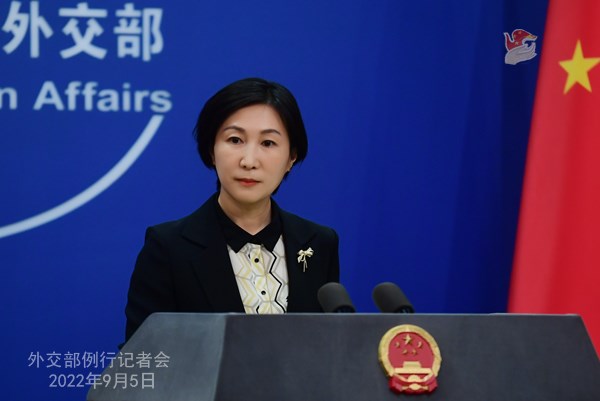Beijing still supports political settlement in Korean peninsula: MFA
The Chinese ministry of foreign affairs reasserts that it continues to seek a political settlement in the region that will ensure sustainable peace.
-

Chinese Ministry of Foreign Affairs spokesperson Mao Ning (Chinese MFA)
Beijing's stance on the Korean Peninsula has not changed, and China will continue to look for a political settlement, according to Mao Ning, a spokesman for the Chinese Foreign Ministry, on Friday. The Yonhap news agency reported earlier in the day that the 7th Session of the 14th Supreme People's Assembly of DPRK adopted a decree on Nuclear Weapons Policy, citing the country's official Korean Central News Agency.
The document states that Kim Jong Un, the leader of DPRK, alone has the authority to decide on any matter involving nuclear arsenals.
During the briefing, the Chinese MFA spokesperson said that "We have taken notice of the reports. China's position on the Korean issue has not changed, we will keep on playing a constructive role in promoting a political settlement to the issue of the Korean Peninsula based on common interests of maintaining peace and stability on the Korean Peninsula."
The DPRK passed legislation that declares the country a nuclear-weapon state, giving its leader, Kim Jong-un, sole authority over nuclear decisions, according to South Korean news agency Yonhap, citing Pyongyang's state media.
In the event that the DPRK's nuclear command and control system is endangered by a hostile assault, a nuclear strike would be launched quickly to eliminate hostile forces, the source of the provocation, and its leadership.
The 7th Session of the DPRK's 14th Supreme People's Assembly approved a decree titled Nuclear Weapons Policy on Wednesday, as per the Korean Central News Agency.
The law, which included 11 paragraphs, governs the use of nuclear weapons.
The new law stipulated that DPRK could use nuclear weapons under these conditions: the imminent threat of an attack on the DPRK by an enemy country using nuclear weapons or other weapons of mass destruction, an attack on the leadership and command of the DPRK's nuclear forces, and an attack on the country's strategically vital facilities.
Read more: Nebenzia slams US report of arms sale from DPRK as fake

 2 Min Read
2 Min Read








